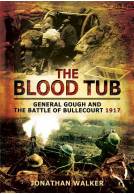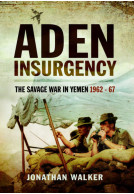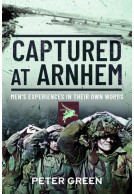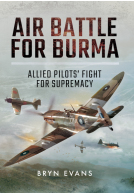D-Day, Arnhem and the Rhine (ePub)
A Glider Pilot’s Memoir
Imprint: Pen & Sword Aviation
File Size: 25.7 MB (.epub)
Pages: 176
Illustrations: 20 mono
ISBN: 9781399088190
Published: 15th July 2022
| Other formats available - Buy the Hardback and get the eBook for £1.99! | Price |
|---|---|
| D-Day, Arnhem and the Rhine Hardback Add to Basket | £20.00 |
Foot soldiers, commandos, parachutists, naval seamen, bomber and fighter pilots – their varied personal experiences of the Second World War have been widely recounted, and the parts they played in the conflict are well known. But there are specialized wartime roles that have received very little attention, notably the gallant actions of the men of the Glider Pilot Regiment. That is why Robert Ashby’s rare and vivid pilot’s memoir is so valua-ble. In it he offers a fascinating insight not only into the major operations he took part in – including D-Day, Arnhem and the Rhine crossing – but into the exacting flying skills required to carry out perilous glider landings on enemy territory while under fire.
His account of his hair-raising training, together with his pen-portraits of his comrades and officers, takes the reader inside the world of a ‘citizen soldier’. The glider landings at Arnhem and the intense fighting that followed are the climax of his narrative, offering us a remarkable insight into one of the most controversial Allied disasters of the entire war.
"While [Ashby] built a very successful post-war career and family, he never escaped the sense of betrayal the Army placed on his shoulders. His ability to communicate these emotions throughout the book makes reading it even more worthwhile."
The Journal of the Air Force Historical Foundation
The role of the wartime glider is often overlooked, or considered an also ran by the mainstream, however this book looks to address some of this oversight, providing a look into the lot of wartime glider pilot Robert F Ashby, flying Horsa gliders into battle with the Glider Pilot Regiment. In this fascinating, accessible, and highly readable account he tells of the actions on D-Day, Arnhem, and at the Rhine, as well as the training undertaken to take a very basic machine into combat. The author brings to life the realities of combat glider flying and narrates the battle on the ground in a manner that brings the imagination into play. Whilst not intended as a reference book it does provide great inspiration to tempt the modeller to hunt down that Italeri Horsa and build one of these vulnerable transport aircraft. A thoroughly enjoyable and lively account of one man’s war in what was probably the most hazardous manner to enter a field of conflict.
Scale Aircraft Modelling
This memoir is full of the small, personal details which make it such a pleasure to read.
WWII History Magazine
This book does not fail to deliver on the interesting vignettes which commonly fail to appear in more general histories. It is well written, and the editing keeps the narrative flowing and coherent.
Competition as featured in
The Armourer
Compiled in the early 1990s from personal notes and recollections, Robert Ashby’s manuscript was digitised by his son in law Mick Steel. After Robert’s death in 2019 his younger son Michael asked Jonathan Walker to edit and publish this book.
The de Havilland Aeronautical Technical School Assc - No 84, Autumn 2022
A librarian, Robert was called up into the Royal Army Service Corps in March 1940. He volunteered for the Glider Pilot Regiment and joined in August 1942. He did the usual training on Tiger Moths and Magisters before being converted to the Airspeed AS51 Horsa. He gives good descriptions of the Horsa and of flying it under tow and in free flight. He took part in the second D-Day airlift, Operation Mallard, landing at Ranville. (As did my uncle in the same lift – RdeM). They were “back home, as advertised” within 48 hours. His next operation was Market Garden, the Arnhem grand plan. He was one of those who escaped across the Rhine. His final operation was Varsity, the massive assault on the east bank of the Rhine in March 1945, which again he survived.
He wrote detailed accounts of Army life in England and in action, with unstinting criticism of the leadership where he felt it was deserved. From this we get, at times, a rather different view from that given in official histories or the memoirs of senior men. Robert died in 2019 aged 103.
Those who trained at Astwick Manor will recall that our workshop was the hangar in which, at Salisbury Hall, the two prototype Horsas were constructed.
It is an exceptional publication with a wealth of personal information that reflects the course of three major European battles in the Second World War as seen, first hand, by an accomplished glider Pilot. The style of writing, the quality of the maps and photographs but, moreover, the opinions of the Author are sufficient for me to award this book five stars. Excellent!
Army Rumour Service (ARRSE)
5 Stars
Read the Full Review Here
The book runs sequentially starting with an overview of the pilot training regime and
Phil Curme
the operational characteristics of the main glider types - most notably the General
Aircraft Hotspur and the Airspeed Horsa AS.51. The bulk of this memoir, however, is
concerned with D-Day, Arnhem and the Rhine Crossing. Whilst the main focus is on
the experiences of battle - described in a richness of detail, the authors observations
about tactics and operational craft make for fascinating - and controversial - reading.
The author concludes that D-Day was a masterpiece of planning, superbly executed.
Market Garden was 'a bad plan inflexibly pursued', and Varsity was a tour-de-force
which is not properly recognised as the triumph that it was. In particular, the author is
highly critical of the casualness which, he says, characterised every aspect of British
command and control during the Battle of Arnhem.
As with most memoirs written long after the events they describe, the text is
undoubtedly imbued with a degree of hindsight. Notwithstanding this, the book lucidly
articulates what it was like to fly a glider into battle - and how dangerous such
endeavours were, both for the pilots, and for the men they carried. It is also a
reminder that once landed the glider pilots were equipped and trained to fight as
infantry - a task which they generally undertook very effectively. The author died in
2019 at the age of 103. This memoir, originally written in the early 1990s, is a
testament to his service - and to his bravery.
Featured by
Mike Peters - Guild of Battlefield Guides, RHQ Royal Anglian Regt
A superb memoir of one man’s war. Robert Ashby was a glider pilot who survived landings at D-Day, Arnhem and the Rhine crossing. Jonathan Walker has done the job of editing so that he does not interfere with the original memoirs but adds sufficient notes, in italics, to provide both context and a little additional information. To highlight any part of the book would be to do a disservice to the whole. The text is supported by a set of very special, many personal, photographs.
Clash of Steel
For anyone with even a passing interest in the Second World war this is a must read. We cannot recommend it too highly.
Read the full review here
Article: Memoir of glider pilot is published
Chichester Observer
This 177-page book was an interesting book and one you don’t really hear much about in his role as a glider pilot, but a quite interesting read. I would recommend this book as you don’t often get books about this role in the war.
The History Fella
Read the full review here
I found this a very interesting read. The experiences of a man who did what was asked of him, and did it well. His views on the RASC were not brilliant, and his experiences of officers, especially at Arnhem, are not very positive. Perhaps a different view of Arnhem to many other accounts I've read. Once the war was over he wasn't keen to stay, and was pleased to be able to get back to his civilian life. An Epilogue does round off a number of points he makes within his memoir. I enjoyed reading this one.
Military Model Scene
Read the full review here
About Robert F Ashby
Before the Second World War Robert Ashby was the Librarian and Museum Curator at Hitchin in Hertfordshire. He was a fluent German speaker and, on a library exchange to Leipzig in 1936, saw Hitler at close quarters. During the war he served first in the Royal Army Service Corps but volunteered for flying duties, training as a pilot with the Glider Pilot Regiment. Flying military gliders, he landed howitzers, jeeps and other vital equipment for the D-Day, Arnhem, and Rhine Crossing operations. After the war he returned to Hitchin and went on to a distinguished career in the library service, end-ing as County Librarian of Surrey. He wrote this memoir for his family.
About Jonathan Walker
Jonathan Walker is an established military history author and lecturer, is a regular contributor to BBC radio and TV documentaries and is a regular visitor to battlefields. He is an Honorary Research Associate, University of Birmingham and a member of the British Commission for Military History. He lives in Sidmouth, Devon.



















